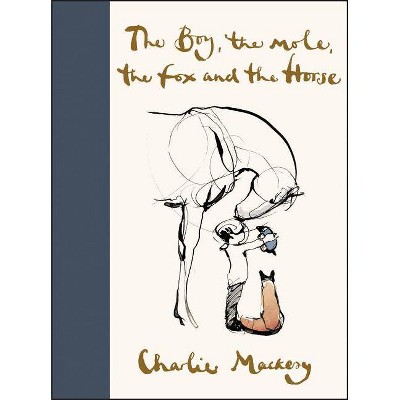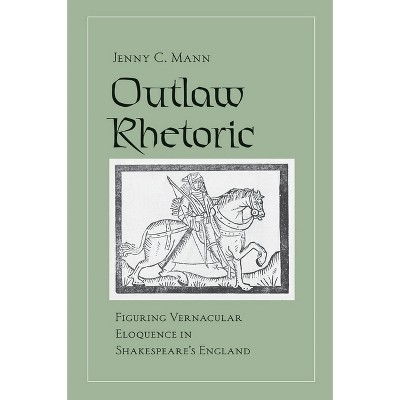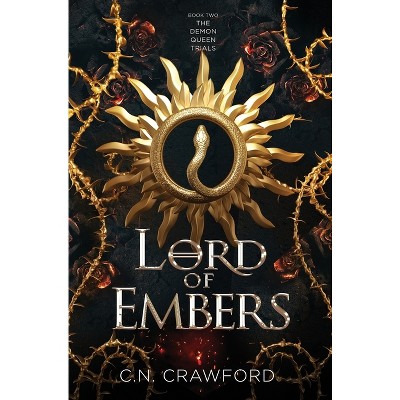Sponsored

The Trials of Orpheus - by Jenny C Mann
$44.49Save $2.51 (5% off)
In Stock
Eligible for registries and wish lists
Sponsored
About this item
Highlights
- A revealing look at how the Orpheus myth helped Renaissance writers and thinkers understand the force of eloquence In ancient Greek mythology, the lyrical songs of Orpheus charmed the gods, and compelled animals, rocks, and trees to obey his commands.
- About the Author: Jenny C. Mann is an associate professor in the Department of English and the Gallatin School at New York University.
- 296 Pages
- Literary Criticism, Ancient & Classical
Description
About the Book
"A revealing look at how the Orpheus myth helped Renaissance writers and thinkers understand the force of eloquence. In ancient Greek mythology, the lyrical songs of Orpheus charmed the gods, and compelled animals, rocks, and trees to obey his commands. This mythic power inspired Renaissance philosophers and poets, from Bacon to Shakespeare, as they attempted to discover the hidden powers of verbal eloquence. They wanted to know: How do words produce action? In The Trials of Orpheus, Jenny Mann examines the key role the Orpheus story played in helping early modern writers and natural philosophers understand the mechanisms of rhetorical force. Mann demonstrates that the forms and figures of ancient poetry indelibly shaped the principles of sixteenth- and seventeenth-century scientific knowledge. Mann explores how Ovid's version of the Orpheus myth gave English poets and natural philosophers the lexicon with which to explain language's ability to move individuals without physical contact. These writers and thinkers came to see eloquence as an aesthetic force capable of binding, drawing, softening, and scattering audiences. Bringing together a range of examples from drama, poetry, and philosophy by Bacon, Lodge, Marlowe, Montaigne, Shakespeare, and more, Mann demonstrates that the fascination with Orpheus produced some of the most canonical literature of the age. Delving into the impact of ancient Greek thought and poetry in the early modern era, The Trials of Orpheus sheds light on how the powers of rhetoric became a focus of English thought and literature"--Book Synopsis
A revealing look at how the Orpheus myth helped Renaissance writers and thinkers understand the force of eloquence
In ancient Greek mythology, the lyrical songs of Orpheus charmed the gods, and compelled animals, rocks, and trees to obey his commands. This mythic power inspired Renaissance philosophers and poets as they attempted to discover the hidden powers of verbal eloquence. They wanted to know: How do words produce action? In The Trials of Orpheus, Jenny Mann examines the key role the Orpheus story played in helping early modern writers and thinkers understand the mechanisms of rhetorical force. Mann demonstrates that the forms and figures of ancient poetry indelibly shaped the principles of sixteenth- and seventeenth-century scientific knowledge. Mann explores how Ovid's version of the Orpheus myth gave English poets and natural philosophers the lexicon with which to explain language's ability to move individuals without physical contact. These writers and thinkers came to see eloquence as an aesthetic force capable of binding, drawing, softening, and scattering audiences. Bringing together a range of examples from drama, poetry, and philosophy by Bacon, Lodge, Marlowe, Montaigne, Shakespeare, and others, Mann demonstrates that the fascination with Orpheus produced some of the most canonical literature of the age. Delving into the impact of ancient Greek thought and poetry in the early modern era, The Trials of Orpheus sheds light on how the powers of rhetoric became a focus of English thought and literature.Review Quotes
"[The Trials of Orpheus] is sure to draw a wide and enthusiastic readership."---Amanda Atkinson, Renaissance Quarterly
"[A] fascinating and erudite book. . . . The Trials of Orpheus will be indispensable for decades to come to early modernists and those in other fields who seek to understand the complexities of classical reception and the uncanniness of poetic creativity from antiquity to the present."---Benjamin Parris, Modern Philology
About the Author
Jenny C. Mann is an associate professor in the Department of English and the Gallatin School at New York University. She is the author of Outlaw Rhetoric: Figuring Vernacular Eloquence in Shakespeare's England. Twitter @jenny_c_mannDimensions (Overall): 9.3 Inches (H) x 6.1 Inches (W) x .9 Inches (D)
Weight: 1.25 Pounds
Suggested Age: 22 Years and Up
Number of Pages: 296
Genre: Literary Criticism
Sub-Genre: Ancient & Classical
Publisher: Princeton University Press
Format: Hardcover
Author: Jenny C Mann
Language: English
Street Date: October 26, 2021
TCIN: 1001558363
UPC: 9780691219226
Item Number (DPCI): 247-27-1430
Origin: Made in the USA or Imported
If the item details aren’t accurate or complete, we want to know about it.
Shipping details
Estimated ship dimensions: 0.9 inches length x 6.1 inches width x 9.3 inches height
Estimated ship weight: 1.25 pounds
We regret that this item cannot be shipped to PO Boxes.
This item cannot be shipped to the following locations: American Samoa (see also separate entry under AS), Guam (see also separate entry under GU), Northern Mariana Islands, Puerto Rico (see also separate entry under PR), United States Minor Outlying Islands, Virgin Islands, U.S., APO/FPO
Return details
This item can be returned to any Target store or Target.com.
This item must be returned within 90 days of the date it was purchased in store, shipped, delivered by a Shipt shopper, or made ready for pickup.
See the return policy for complete information.
Frequently bought together

$18.10
MSRP $22.99
Buy 1, get 1 50% off select books & accessories
4.9 out of 5 stars with 292 ratings

$15.99
MSRP $30.00
Buy 1, get 1 50% off select books & accessories
4.8 out of 5 stars with 6 ratings
Trending Book Deals

Highly rated
$19.00
reg $20.98 Sale
Buy 1, get 1 50% off select books & accessories
5 out of 5 stars with 9 ratings














